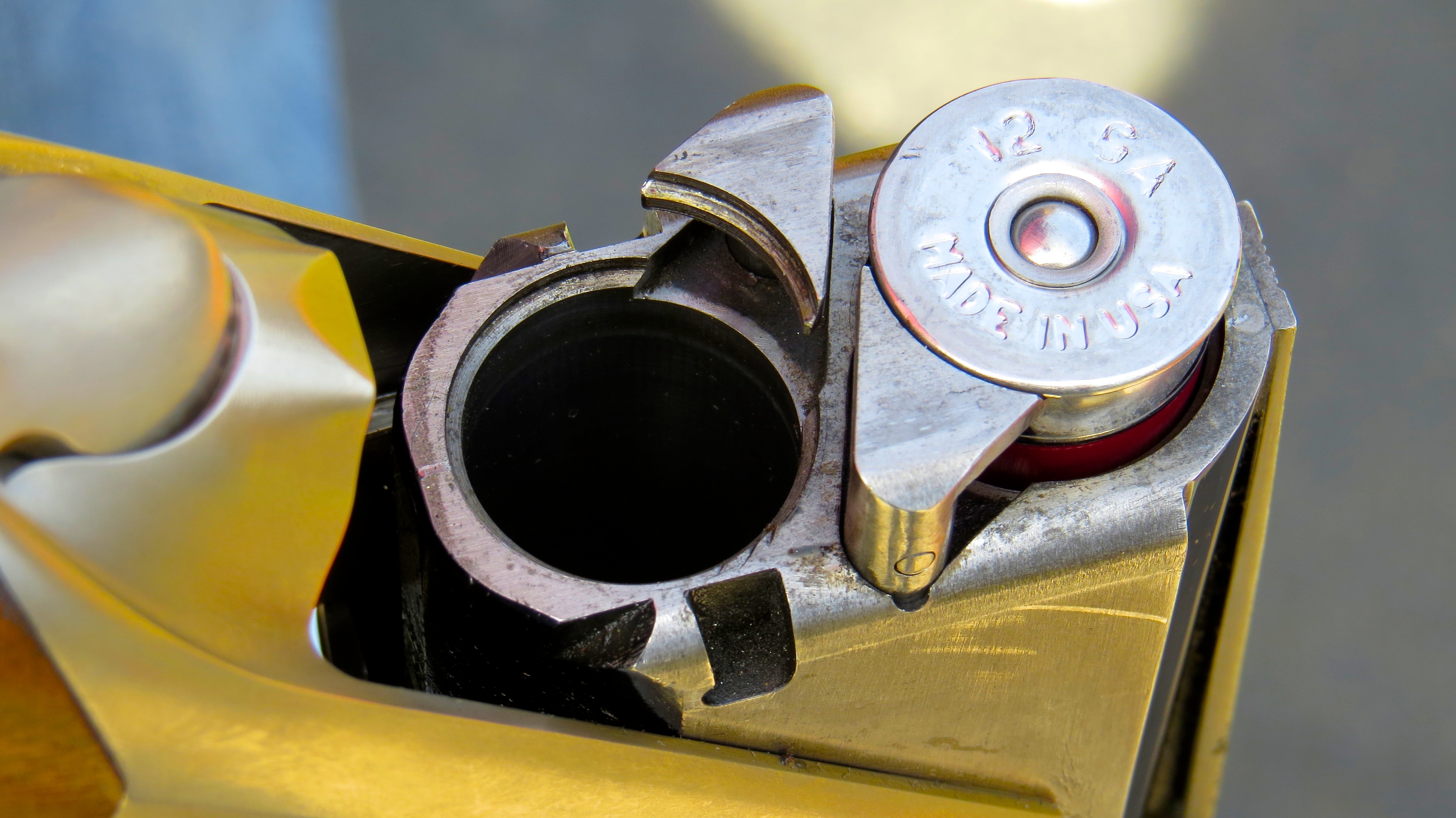TRURO — Voters here will be asked to permanently increase the town budget on June 30 so it can hire four new firefighter-paramedics, a move that would beef up the local ambulance service should the Lower Cape Ambulance Association (LCA) be dissolved.
Truro Fire Chief
PUBLIC SAFETY
Gun License Info Is Exempt From Records Law
Police chiefs have discretion in deciding who can have firearms

TRURO — Police Chief Jamie Calise has denied a request from the Independent for more information about the number, types, and present whereabouts of the firearms and ammunition that were confiscated from former Truro Fire Chief Brian Davis last year after a harassment prevention order was issued against him.
As this newspaper reported on Oct. 24, the order was granted by Judge Toby S. Mooney of Orleans District Court in May 2018 after Davis was found to have made threats against the lives of Town Manager Rae Ann Palmer and current Fire Chief Timothy Collins. Palmer had stated in an affidavit that Davis had made similar statements to her on several occasions dating back to 2014 when she first became town administrator.
Unconfirmed reports put the number of guns that were seized from Davis between 60 and 80. The harassment prevention order was allowed to expire in June 2019. Calise and other Truro officials have refused to say whether the guns are now back in Davis’s possession.
Calise’s denial is based on a provision of Massachusetts law that exempts information about firearms from the state’s public records law. The exemption was created in 1982 through a petition from the Gun Owners’ Action League of Massachusetts (GOAL).
Under the law the names and addresses of individuals applying for or bearing firearm licenses, as well as selling or transferring firearms, including ammunition and machine guns, are exempt from the public records law.
Government agencies, however, including the police, can access information regarding gun ownership.
Gun safety advocates say that Massachusetts has some of the strictest firearms laws in the country. “Massachusetts is looked to as a leader in the U.S. for gun safety,” said Donna Wald of Yarmouth Port, vice president of Grandmothers Against Gun Violence. “We have great gun laws here. But we still need to fight for them. It’s an ongoing struggle.”
GOAL continues to challenge Massachusetts firearms laws in an effort to ease restrictions. For example, GOAL is currently suing over the enforcement of a statewide ban on assault weapons, claiming the ban violates the Second Amendment. The U.S. Supreme Court may hear the case early next year.
Wald said Massachusetts gun laws work partly because they are based on police departments’ relationships with communities. “In smaller towns, the police department is more likely to know peoples’ history,” she said. “They can say, ‘You’ve got an abuse record, so there’s no way I’m giving you this license.’ ”
Wellfleet Police Chief Mike Hurley agreed. In Wellfleet, he said, the police have personal relationships with residents and are privy to more information than may be in a formal criminal record.
“Maybe they’ve had issues that haven’t risen to the level of criminal charges,” Hurley said. “Or you’ve been dealing with them in terms of substance abuse or mental health issues.” In those cases, the police may choose to deny an applicant a license.
Hurley admitted that police rarely intervene in this way. One study from 2017 found that local police approved 97 percent of firearm license applications in Massachusetts.
In Truro, according to the police dept., 302 people, or about 15 percent of residents, have a license to carry (LTC) firearms. Another 40 have firearms identification cards (FID). The numbers are similar in neighboring towns; in Wellfleet and Eastham, respectively, 356 residents (13 percent) and 693 residents (14 percent) hold firearms licenses. Provincetown has fewer gun licenses: 160 in total.
Nationally, about one in three adults owns a gun. Among adults who own guns, 29 percent own five firearms or more. In Massachusetts, about 22 percent of adults own firearms.
An LTC allows people to purchase, possess, transfer, and carry all legal guns, including handguns, rifles, and semi-automatic large-capacity firearms. Available to people 21 years and older, an LTC also allows concealed carry. An FID permits the purchase and possession of smaller guns and can be obtained by those 15 years old and older.
All sales and other transfers of guns must be registered in the Mass. firearms portal. Local and state law enforcement agencies use this database to track guns and keep tabs on how many firearms an individual owns.
In 2017, 60 percent of gun deaths in the U.S. — a total of 23,854 fatalities — were suicides. Massachusetts had the second-lowest rate of gun deaths in the nation, with 3.7 per 100,000 fatalities.
Police say that concerned friends and family members often are the first line of defense against gun violence. Over his 25 years in public safety work, Hurley said, he has seen a large increase in the number of calls regarding mental health.
“If you were worried about someone 10 or 15 years ago, you couldn’t call us to check on them, whereas, today nobody hesitates to call,” he said. “The stigma is wearing off.”
When the Wellfleet police perform a welfare check, they also ascertain whether the individual has a firearms license through the state portal.
Gun licenses are not immutable. Police chiefs have the right to temporarily revoke an individual’s license if her behavior suggests she is a threat to herself or others.
“If there are concerns, we can at any point revoke their license and remove firearms from their property,” said Hurley. “There have been times in the past that the chief has suspended a license for mental health. Once cleared by a doctor, they can get the license back.”
